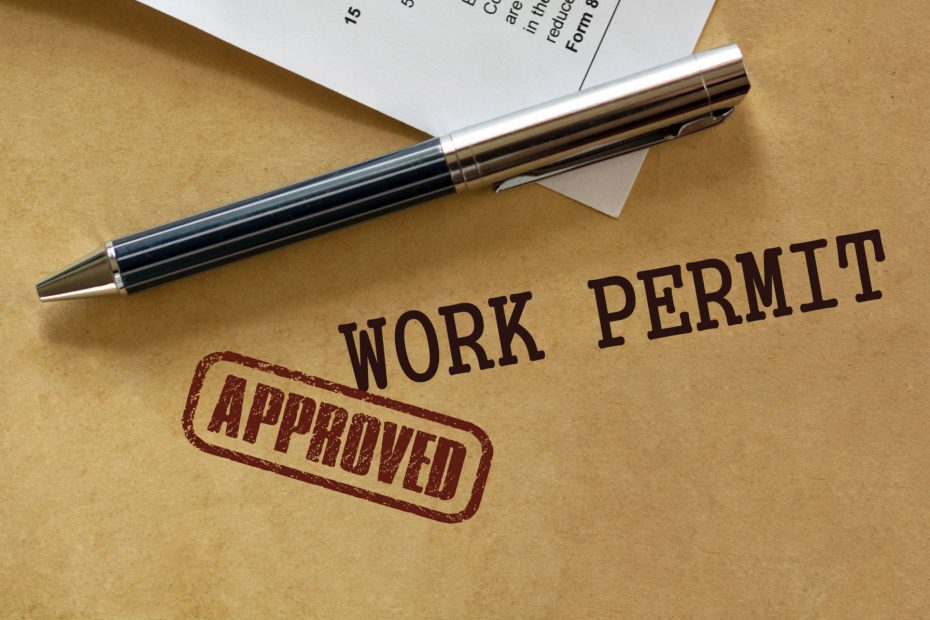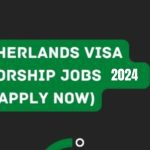The purpose of this blog post is to provide a comprehensive guide on how to obtain a work permit in the Netherlands for foreigners. The process of obtaining a work permit can be complicated and time-consuming, and it can be challenging to navigate without proper guidance.
Therefore, this blog post aims to provide step-by-step instructions on how to obtain a work permit, including information on the different types of work permits available, the requirements for each type, and the application process.
By reading this blog post, foreigners who wish to work and live in the Netherlands can learn how to obtain a work permit legally, ensuring that they can work without the risk of being fined, deported, or even banned from returning to the country. Additionally, this blog post emphasizes the importance of obtaining a work permit, as it provides protection under Dutch labour laws and ensures peace of mind while living and working in the Netherlands.
Types of Work Permits in the Netherlands
Here’s some more information on the different types of work permits available in the Netherlands:
Highly Skilled Migrant Permit:
The highly skilled migrant permit is designed for highly skilled professionals who have a job offer from a recognized sponsor in the Netherlands. The applicant needs to meet certain income criteria and education levels to be eligible for this permit. The permit is initially granted for a maximum of five years, after which it can be extended.
Intra-Corporate Transfer Permit:
The intra-corporate transfer permit is designed for employees who are being transferred from a non-EU country to work for a branch or subsidiary of their company in the Netherlands. The applicant must have worked for the company for at least three months before the transfer and meet certain income criteria.
Orientation Year Permit:
The orientation year permit is designed for international graduates from Dutch universities who want to stay in the Netherlands to find employment. This permit allows them to stay in the Netherlands for up to one year to search for a job or start a business. During this time, they are permitted to work in any field without the need for a separate work permit.
Highly Skilled Migrant EU Blue Card:
The EU Blue Card is a work permit allowing highly skilled workers outside the European Union to work in the Netherlands. The applicant must have a job offer from a recognized sponsor in the Netherlands, meet certain income criteria, and have completed a recognized degree program. The Blue Card is initially granted for a maximum of four years, after which it can be extended.
Work Permit for Self-Employed Persons:
Would You Like To Apply For This Jobs/Sponsorship?
Enter Your Email Address HERE & You Will Receive a Notification About Your Application. If it shows "Subscribed" CLICK HERE to follow on Telegram for updatesThe work permit for self-employed persons is designed for entrepreneurs and freelancers who want to start a business in the Netherlands. The applicant needs to meet certain income criteria and demonstrate that their business will be of benefit to the Dutch economy.
These are the main types of work permits available in the Netherlands for foreigners. It’s important to note that each permit has its own specific requirements and application process, so it’s recommended to research and choose the permit that best suits your situation.
Eligibility Criteria
Here are some of the eligibility criteria that foreigners need to meet to be eligible for a work permit in the Netherlands:
Job offer from a recognized sponsor:
To be eligible for most types of work permits in the Netherlands, foreigners must have a job offer from a recognized sponsor. The sponsor must be registered with the Dutch Immigration and Naturalization Service (IND) as an employer and must have a valid employer reference number (ERN).
Minimum salary requirements:
For most types of work permits in the Netherlands, foreigners must meet certain minimum salary requirements. The exact salary requirements depend on the type of work permit and the applicant’s age. For example, the minimum salary requirement for the Highly Skilled Migrant Permit in 2025 is €4,752 gross per month for applicants aged 30 or older.
Valid passport:
Foreigners must have a valid passport to apply for a work permit in the Netherlands. The passport must be valid for at least six months beyond the intended stay in the country.
Educational requirements:
Certain work permits, such as the Highly Skilled Migrant Permit and the EU Blue Card, have educational requirements. Applicants must have completed a recognized degree program or have equivalent work experience.
Health insurance:
Foreigners must have health insurance to be eligible for a work permit in the Netherlands. They can either purchase private health insurance or enrol in the Dutch public health insurance system.
These are some of the main eligibility criteria that foreigners need to meet to be eligible for a work permit in the Netherlands. It’s important to note that each type of work permit has its specific requirements, so it’s recommended to research and choose the permit that best suits your situation.
Other requirements may include:
- Residence permit: Most work permits require the applicant to also obtain a residence permit. The applicant must apply for a residence permit at the same time they apply for the work permit.
- Language proficiency: For some work permits, such as the Highly Skilled Migrant Permit, applicants must demonstrate sufficient proficiency in the Dutch or English language. The language proficiency requirement may be waived for certain professions or for applicants who have completed their education in English.
- Background checks: Applicants for work permits may be subject to background checks to ensure that they do not pose a threat to public order, security or health.
- TB test: Applicants from certain countries may need to undergo tuberculosis (TB) tests before they can be granted a work permit. The test is intended to prevent the spread of TB in the Netherlands.
- Employment contract: Applicants for work permits must have a valid employment contract with their sponsor that meets certain requirements, such as the minimum number of working hours per week.
These are some of the additional requirements that may apply depending on the type of work permit you are applying for. It’s important to research and understand all the requirements that apply to your specific situation to ensure a successful application.
The Application Process
Here’s a step-by-step guide on how to apply for a work permit in the Netherlands:
Determine the type of work permit you need:
Research and determine the type of work permit that best suits your situation, based on your qualifications and the requirements of your sponsor.
Gather the required documents:
Gather all the required documents for your work permit application, such as your passport, employment contract, and education and work experience certificates. The exact list of required documents will depend on the type of work permit you are applying for.
Apply:
Submit your application to the Dutch Immigration and Naturalization Service (IND) along with all the required documents. You can submit your application online or by mail.
Pay the application fee:
Pay the application fee, which can vary depending on the type of work permit you are applying for. The fee must be paid before your application can be processed.
Wait for a decision:
Wait for a decision on your application. The processing time can vary depending on the type of work permit you are applying for, but it
Processing Times and Fees
Information on processing times and fees for work permit applications in the Netherlands:
The processing time for a work permit application can vary depending on the type of permit and the IND workload. As a general guideline, the IND aims to process most work permit applications within 90 days.
However, some applications may take longer to process, particularly if additional information or documents are required.
Fees:
The fees for a work permit application in the Netherlands can also vary depending on the type of permit. Here are some of the fees you can expect to pay:
- Highly Skilled Migrant Permit: €363
- Intra-Corporate Transfer Permit: €1,288
- Orientation Year Permit: €174
In addition to the work permit fees, there may be additional fees for other aspects of the application process, such as the application for a residence permit or a visa.
It’s important to note that fees are subject to change, so it’s always best to check the latest fee information on the IND website before applying.
Overall, it’s important to plan and allow plenty of time for the work permit application process. This includes gathering all the required documents and paying the fees well in advance of your intended start date.
Tips and Resources
Seek legal assistance:
Navigating the Dutch work permit application process can be complex, so it’s a good idea to seek legal assistance from an experienced immigration lawyer or consultant. They can help guide you through the process, ensure that all required documents are submitted correctly, and answer any questions you may have.
Research job opportunities:
Before applying for a work permit, research job opportunities in the Netherlands to ensure that your skills and experience are in demand. Some resources for job searching in the Netherlands include websites like Indeed.nl, LinkedIn, and Glassdoor, as well as local recruitment agencies and job fairs.
Learn the Dutch language:
While it’s not a requirement for all work permit applications, learning Dutch can be a valuable asset when living and working in the Netherlands. It can help you integrate into Dutch society, build professional relationships, and even increase your chances of finding a job.
Understand Dutch culture:
Familiarizing yourself with Dutch culture can also be helpful when living and working in the Netherlands. This includes learning about Dutch customs, values, and business practices, as well as the Dutch healthcare and education systems.
Use resources from the IND:
The Dutch Immigration and Naturalization Service (IND) website is a valuable resource for information about work permits and other immigration-related topics. It includes detailed guides on the different types of work permits, as well as information on required documents, fees, and processing times.
By following these tips and utilizing the resources available, you can increase your chances of a successful work permit application and a smooth transition to working and living in the Netherlands.
Conclusion
Obtaining a work permit in the Netherlands requires meeting eligibility criteria, going through the application process, and planning, but it can be a rewarding experience for foreigners interested in working and living in the country, with the help of legal guidance and resources available.







Dear Hiring Manager,
I am interested to work in Caregiver as a sales person, cashier or any suitable job position with visa sponsorship from Ethiopia 🇪🇹 please. Thank you for your consideration and help.
I am intrested in caregiver and Dashing washing Job with visa sponsorship . Please help me